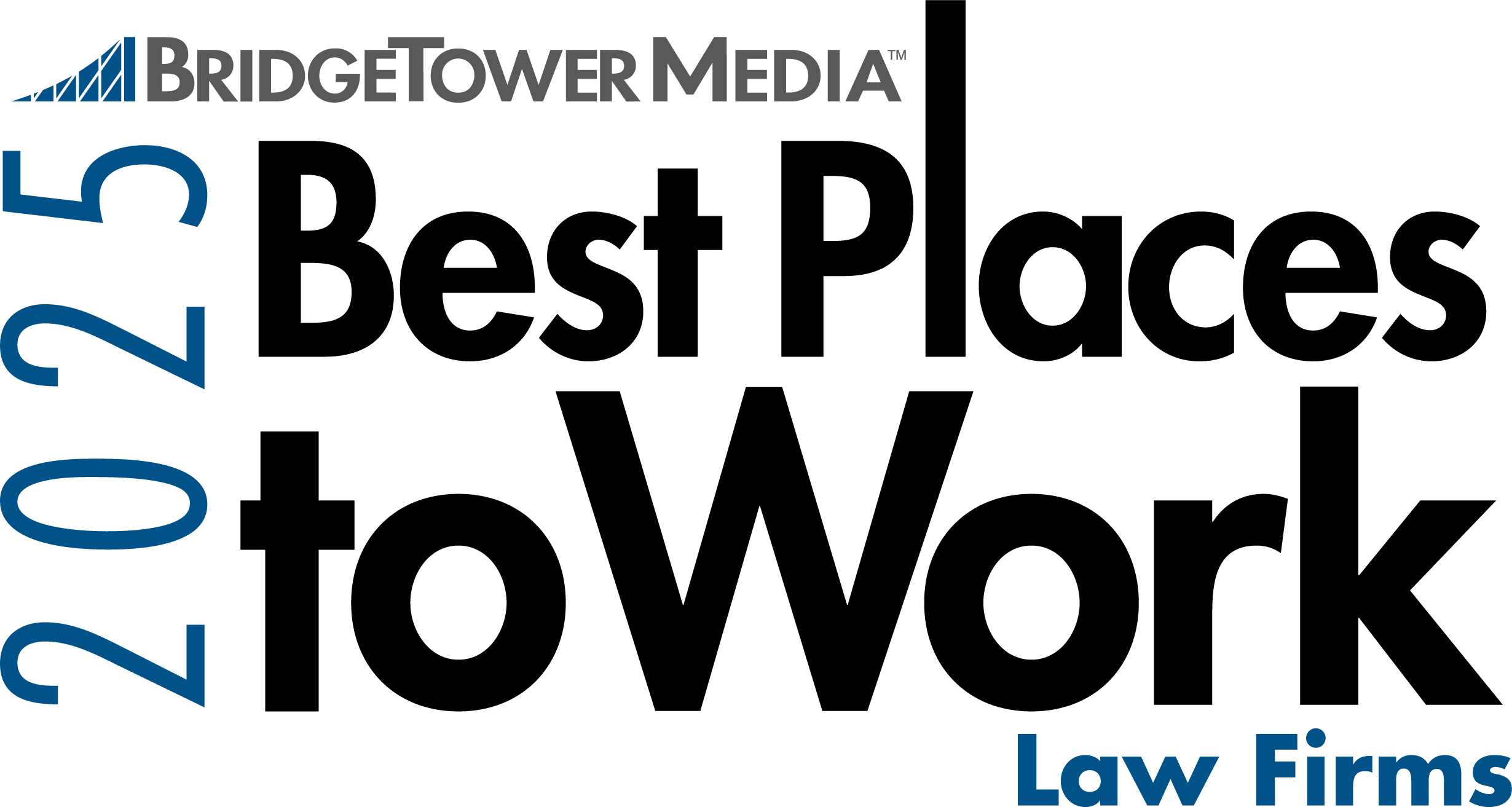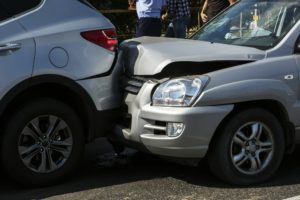Yes, in Missouri, you generally have the right to sue after a car accident if another person’s carelessness caused your injuries and financial losses.
Suffering injuries in a crash on a busy road like I-55 or Kingshighway can leave you with pain, mounting medical bills, lost time from work, and the stress of a damaged vehicle. Pursuing a legal claim is about holding the responsible party accountable and securing the compensation and resources you need to recover fully. A car accident lawyer can help guide you through the legal process and fight for the compensation you deserve.
Understanding When a Lawsuit is Possible
For a car accident lawsuit to be viable, certain legal elements must be established. It is not enough that an accident happened; you must be able to demonstrate that another party was legally at fault. This concept is built on the idea of negligence.
To build a strong case, you and your legal team will need to show four key things:
- Duty of Care: Every driver on a Missouri road has a legal obligation to operate their vehicle with reasonable care to avoid harming others. This is an implied duty for anyone who gets behind the wheel.
- Breach of Duty: The at-fault driver violated this duty of care. This means they acted carelessly or recklessly, doing something a reasonable person would not have done.
- Causation: The driver’s breach of duty was the direct cause of the accident and, subsequently, your injuries. The connection between their action and your harm must be clear.
- Damages: You suffered actual, measurable losses as a result of the accident. These can be financial, physical, or emotional in nature.
Without these four components, it is very difficult to successfully sue after a car accident.
What is Negligence in a Missouri Car Accident?
Negligence is the legal foundation of a personal injury claim. It refers to a failure to exercise the level of care that a reasonably prudent person would have exercised under the same circumstances. In the context of driving in SEMO, from the streets of Sikeston to the hills around Poplar Bluff, negligence can take many forms.
Some common examples of driver negligence include:
- Distracted Driving: This is a major cause of collisions and includes texting, talking on the phone, adjusting the radio, or any other activity that takes a driver’s attention away from the road.
- Driving Under the Influence (DUI): Operating a vehicle while impaired by alcohol or drugs is a clear and serious breach of a driver’s duty of care.
- Speeding and Reckless Driving: Exceeding the speed limit or driving aggressively, such as tailgating or weaving through traffic, significantly increases the risk of an accident.
- Violating Traffic Laws: Actions like running a red light at an intersection in Cape Girardeau, failing to yield the right of way, or making an improper lane change are all forms of negligence.
These actions demonstrate a disregard for the safety of others and often form the basis for holding a driver financially responsible for the harm they cause.
The Difference Between an Insurance Claim and a Lawsuit
Many people use the terms “claim” and “lawsuit” interchangeably, but they represent different stages of the personal injury process. Most cases actually begin and end with an insurance claim and never proceed to a formal lawsuit. Knowing the difference helps you understand the road ahead.
Here is a simple breakdown of the two processes:
- An Insurance Claim: This is the initial step where you, or an attorney on your behalf, will file a claim with the at-fault driver’s insurance company. The process involves presenting evidence of the other driver’s fault and documenting your damages. The goal is to negotiate a fair settlement that covers your losses without ever stepping into a courtroom. The vast majority of car accident cases are resolved at this stage.
- A Car Accident Lawsuit: If the insurance company refuses to offer a fair settlement or disputes liability, filing a lawsuit may become necessary. This is a formal legal action filed in court. The lawsuit initiates a process called discovery, where both sides exchange information and evidence. While filing a lawsuit can feel intimidating, it is a powerful tool to compel an insurer to take your claim seriously.
Even after a lawsuit is filed, settlement negotiations often continue. A case can settle at any point before a final verdict is reached by a judge or jury.
What Kind of Compensation Can I Recover?
If you were injured because of another driver’s negligence, you may be entitled to recover compensation for a wide range of losses. This compensation, legally referred to as “damages,” is intended to make you “whole” again, at least from a financial standpoint. Damages are typically broken down into two main categories: economic and non-economic.
Economic damages are the tangible financial losses you have incurred.
- All past, current, and future medical expenses related to the accident
- Lost wages or income from being unable to work during your recovery
- Loss of future earning capacity if your injuries prevent you from returning to your former job
- The cost of repairing or replacing your vehicle and other damaged property
Non-economic damages compensate you for the intangible, personal losses that do not have a specific price tag.
- Physical pain and suffering
- Emotional distress, anxiety, and mental anguish
- Loss of enjoyment of life, such as being unable to participate in hobbies or activities you once loved
- Permanent scarring or disfigurement
Calculating these damages requires a thorough evaluation of your individual circumstances, and it is a critical part of building your case for your just compensation.
Missouri’s Statute of Limitations for Car Accidents
It is critically important to be aware of the legal deadlines for taking action after a car crash. In Missouri, this deadline is known as the statute of limitations. If you fail to file a lawsuit within this time frame, you may lose your right to seek compensation forever, regardless of how strong your case is.
For most car accident cases in Missouri, the following deadlines apply:
- Personal Injury: You have five years from the date of the accident to file a lawsuit for personal injuries.
- Property Damage: You have five years from the date of the accident to file a lawsuit for damage to your vehicle or other property.
- Wrongful Death: If a car accident results in a fatality, the surviving family members generally have three years from the date of the death to file a wrongful death lawsuit.
While these timeframes may seem long, it is always best to act promptly. Building a strong case takes time, and evidence can disappear, and memories can fade.
How Does Comparative Fault Work in Missouri?
Sometimes, the circumstances of an accident are not entirely black and white. You may worry that you cannot sue after a car accident if you were partially to blame. However, Missouri law addresses this situation with a legal rule known as “pure comparative fault.”
This rule allows you to recover damages even if you were partly at fault for the crash.
- Under pure comparative fault, a judge or jury will determine the total amount of your damages and then assign a percentage of fault to each party involved.
- Your total compensation award is then reduced by your percentage of fault.
- For example, if you are found to have $100,000 in damages but are determined to be 10% at fault for the accident, your final award would be reduced by 10%, leaving you with $90,000.
This system means that you are not barred from recovery unless you are found to be 100% responsible for the collision.
Steps to Take at Home After a SEMO Car Accident
Once you are home from the scene of the accident and have addressed your immediate medical needs, there are several steps you can take to protect your health and your potential legal claim. The actions you take in the days and weeks following the crash are crucial.
Consider taking the following steps to stay organized and prepared:
- Continue All Medical Treatment: Your health is the top priority. Go to all follow-up appointments and follow your doctor’s treatment plan precisely. This not only aids your recovery but also creates an official record of your injuries.
- Keep Detailed Records: Create a file and keep everything related to the accident. This includes medical bills, repair estimates, receipts for prescriptions, and any correspondence from insurance companies.
- Be Cautious on Social Media: It is best to avoid posting anything about the accident, your injuries, or your recovery on social media platforms. Insurance companies can and will use your posts against you to try and downplay the severity of your injuries.
Taking these proactive measures can help strengthen your position if you decide to pursue a claim.
Suing After a Car Accident FAQs
Here are answers to some common questions that arise when people consider their legal options following a crash.
What if the at-fault driver has no insurance?
If the driver who hit you is uninsured or does not have enough insurance to cover your damages, you may still have options. Your own auto insurance policy might include Uninsured Motorist (UM) or Underinsured Motorist (UIM) coverage. This coverage is designed to protect you in exactly this situation, allowing you to file a claim with your own insurer to cover your losses.
Will I have to go to court if I file a lawsuit?
Filing a lawsuit does not automatically mean you will end up in a trial. In fact, the vast majority of personal injury lawsuits are settled out of court. Filing the suit is often a strategic step to show the insurance company you are serious and to gain access to more evidence. Negotiations for a settlement can, and usually do, continue throughout the legal process.
How much does it cost to hire a car accident attorney?
Most personal injury law firms work on a contingency fee basis. This means you do not pay any attorney’s fees upfront. The firm will cover the costs of building and pursuing your case. You only pay a fee if they successfully recover compensation for you, either through a settlement or a court verdict. The fee is typically a percentage of the total recovery.
What should I do if the other driver’s insurance company calls me?
You should be very careful when speaking to the at-fault driver’s insurance adjuster. Their job is to minimize the amount the company has to pay. They may ask for a recorded statement or try to get you to accept a quick, lowball settlement offer. It is often best to politely decline to give a statement and refer them to your attorney.
Can I sue if a loved one was killed in the accident?
Yes. If you have lost a family member in a car accident caused by someone else’s negligence, you may be able to file a wrongful death claim. This type of lawsuit allows certain surviving relatives, such as a spouse, children, or parents, to seek compensation for their losses, including funeral expenses, loss of financial support, and the loss of companionship and guidance.
Your Path to Justice Starts Here
The time after a serious car accident is challenging, filled with physical recovery, emotional strain, and financial uncertainty. Having a dedicated and compassionate legal team by your side can make all the difference in your case, allowing you to focus on what matters most: your healing and your family.
At Cook, Barkett, Ponder & Wolz, we understand the difficulties you are facing. We are committed to listening to your story, understanding the impact the accident has had on your life, and fighting for justice on your behalf. We serve clients throughout Southeast Missouri and are ready to stand with you. For a free and confidential evaluation of your case, contact our team of personal injury attorneys in Cape Girardeau today, call at (573) 335-6651 or through our online form to begin the conversation.







